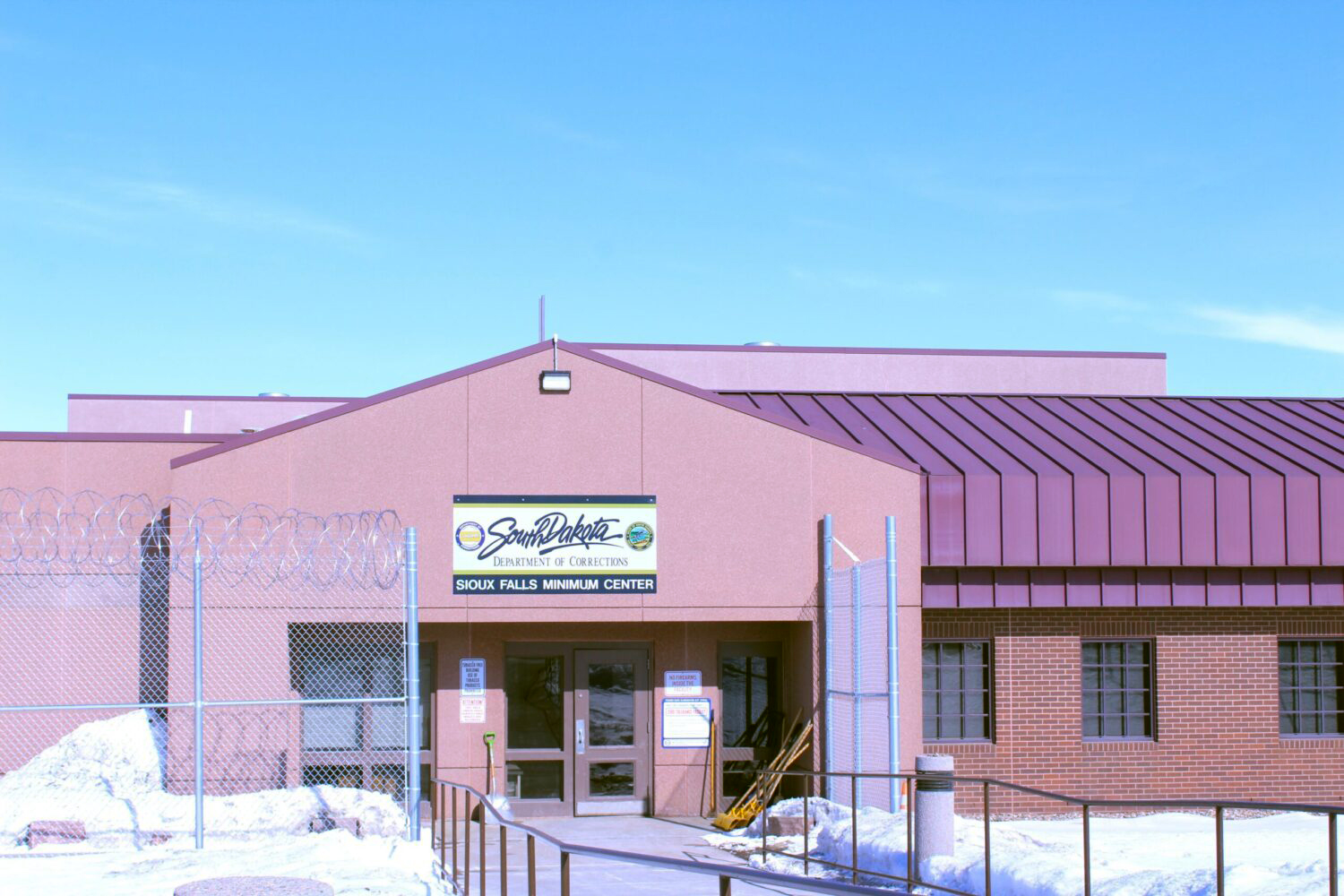
(John Hult/South Dakota Searchlight)
Gov. Kristi Noem has issued 40 pardons since April, according to records on file with the Secretary of State’s Office.
The pardons bring the total number issued by Gov. Noem since the start of her first term to 268.
The Board of Pardons and Paroles offers recommendations on pardons to the governor, but South Dakota’s constitution empowers the governor alone with the ability to grant them. A pardon clears a criminal conviction from a person’s record, and stands as the only way to clear a record in the state in most instances, regardless of the length of time since the offense.
People who wish to clear their criminal record through the pardon process appear before the Board of Pardons and Paroles in a public hearing, at which they must convince at least five of its nine members to recommend clemency.
What happens after the board issues a recommendation takes place outside of public view, however. The governor and her staff are given recordings of the parole board hearings on each pardon request and the requestor’s associated records, and at some point the governor’s office reviews the information and makes a decision. There is no requirement for a governor to attend to pardons in a timely fashion or to report pardon decisions to the public or the Legislature.
Once a pardon is signed, the document is filed with the secretary of state and remains open to public inspection for five years before being sealed.
Georgia woman among new pardons
In the run-up to the publication of an April South Dakota Searchlight story on Noem’s use of her pardon powers, Noem had signed pardons in spurts, nearly always signing several on a single day. The longest period between pardon signings was 229 days, between July of 2021 and March of 2022.
The pardons issued in 2023 have come more frequently. The 40 issued since April were signed on seven separate dates, with at least one issued every month but September.
There were 11 pardons issued on Oct. 11, 2023. Among them was a pardon for Terra Lynn Eagle Feather, who opted against a virtual meeting and drove from Georgia to Sioux Falls in March with her 2-year-old granddaughter to attend her pardon hearing.
She told the parole board that she’d spent decades raising her family and steering clear of trouble, and she earned a unanimous vote from the board to clear her 29-year-old conviction for sexual contact with a child younger than 16. It was her second request for a pardon, the first coming 10 years before.
Two weeks after her hearing, Eagle Feather told South Dakota Searchlight that she felt it was important for the board to see her face-to-face.
“I wanted them to see me,” she said. “I wanted them to see that I’m not that same 20-year-old any more. I’m a 49-year-old woman. I have a family now. If it had been in Rapid City and it was a 24-hour drive, I still would have made it.”
Pardon may help Rapid City man with work opportunity
Criminal convictions can stand in the way of work opportunities, which is part of the reason some states have moved to automatically expunge certain crimes after periods of law-abiding behavior, or to allow those with convictions to file paperwork for an expungement without a hearing. Minnesota Attorney General Keith Ellison was scheduled to be on hand for a mass expungement clinic Wednesday, in an effort to get more Minnesotans to take advantage of that state’s expungement statutes.
A Rapid City man and construction contractor named Bradley Olson, who has become an advocate for recovering addicts in the years since his third driving under the influence conviction in 2009, was issued a pardon in August. Like Eagle Feather, Olson made his case for clemency in March.
Olson’s lawyer, Ryan Duffy, told the board about Olson’s concerns that his years-old felony conviction might keep him from doing work for Ellsworth Air Force Base if the base’s security level were tightened.
Per parole board policy, South Dakotans are eligible for a pardon five years from the date of their conviction. Former Gov. Dennis Daugaard moved to create an expedited pardon application process for lower-level crimes during his second term in office. Such pardons still require a hearing before the board, but the initial steps of the application process take place online.
